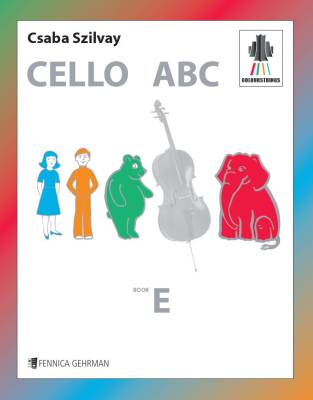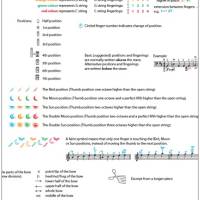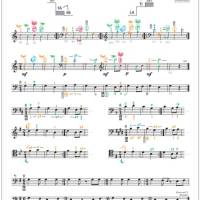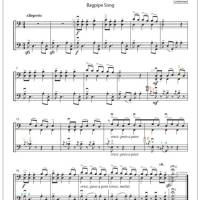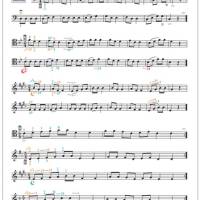Colourstrings Cello ABC: Book E — Cello tutor
Szilvay, CsabaProduct information
| Title: | Colourstrings Cello ABC: Book E — Cello tutor | ||
| Authors: | Szilvay, Csaba (Author) | ||
| Product number: | 9790550094819 | ||
| Product form: | Sheet music | ||
| Availability: | Delivery in 3-7 days | ||
| Price per piece: | 52,32 € (46,10 € vat 0 %) | ||
|
|||
| Publisher: | Fennica Gehrman |
| Edition: | 2019 |
| Publication year: | 2019 |
| Language: | English |
| Pages: | 144 |
| Product family: | Frontpage Colourstrings materials Violoncello Colourstrings violin/viola/cello/double bass tutors Colourstrings, Colour Keys, other related methods |
| Finnish library classification: | 78.731 Sellonsoiton opintoaineistoksi tarkoitettu musiikki |
| Key words: | cello abc, colourstrings |
Colourstrings Cello ABC: Book E continues the Cello ABC series. Book E teaches the new material, the 5 different pentachords, using numerous folk songs and chamber music works. Teachers should choose the music that best suits their pedagogical aims and needs.
The new element, the minor 2nd interval was introduced by adding the FA and TI notes. Later on these are expanded into the four types of tetrachrods (Major, Minor, Phrygian, Lydian). Melodies based on these tone sets (including folk song arrangements) help develop the students' taste and sense of musical character (which is the foundation for understanding the music of the 20th century). The precise and interesting ngerings aid their sense of pitch.
The Colourstrings method by Géza and Csaba Szilvay
• develops the capacity for inner hearing using singing and relative solmization
• left-hand “numbered pizzicato” prepares all fingers for stopping motion
• makes use of natural harmonics to teach the left hand an optimal, relaxed position
• suitable also for group teaching
Based on Zoltán Kodály's philosophy, the Colourstrings method domesticates the instruments and the instrumental teaching to meet the child's need.
The standard stave system is reached step by step: it initially starts with no stave at all, then introduces the one-line and two-line staves, then the two-line system superimposed within a five-line stave, and finally, the full five-line stave.
Colours and visual presentation awaken and maintain interest and make the learning process easier, more enjoyable, deeper and longer-lasting. During 50 years of time, the ever-developing Colourstrings method has brought up hundreds of professional musicians of many generations.
The new element, the minor 2nd interval was introduced by adding the FA and TI notes. Later on these are expanded into the four types of tetrachrods (Major, Minor, Phrygian, Lydian). Melodies based on these tone sets (including folk song arrangements) help develop the students' taste and sense of musical character (which is the foundation for understanding the music of the 20th century). The precise and interesting ngerings aid their sense of pitch.
The Colourstrings method by Géza and Csaba Szilvay
• develops the capacity for inner hearing using singing and relative solmization
• left-hand “numbered pizzicato” prepares all fingers for stopping motion
• makes use of natural harmonics to teach the left hand an optimal, relaxed position
• suitable also for group teaching
Based on Zoltán Kodály's philosophy, the Colourstrings method domesticates the instruments and the instrumental teaching to meet the child's need.
The standard stave system is reached step by step: it initially starts with no stave at all, then introduces the one-line and two-line staves, then the two-line system superimposed within a five-line stave, and finally, the full five-line stave.
Colours and visual presentation awaken and maintain interest and make the learning process easier, more enjoyable, deeper and longer-lasting. During 50 years of time, the ever-developing Colourstrings method has brought up hundreds of professional musicians of many generations.



